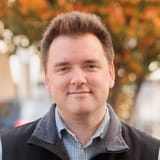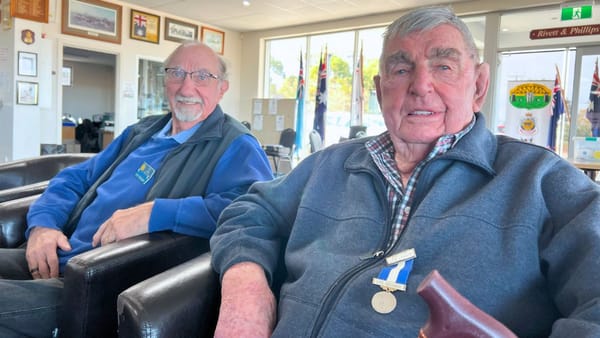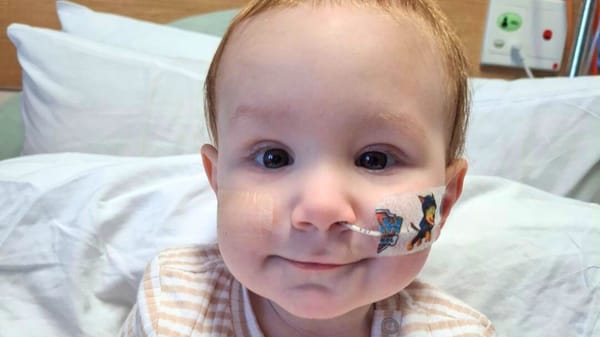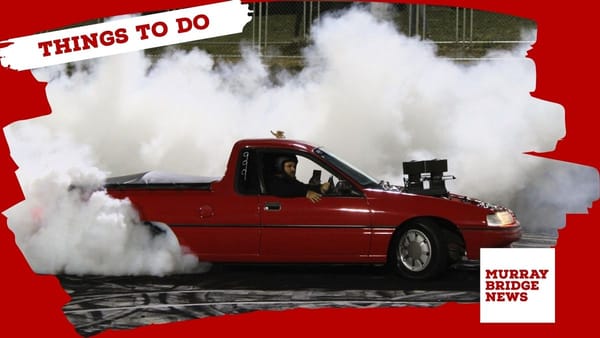‘We’ll only get one shot’: Ngarrindjeri leaders make final pitch for yes vote
Local Indigenous leaders are appealing to undecided voters in the final days before this weekend’s referendum on an Indigenous Voice to Parliament.

Locals support locals – that’s why this post about the upcoming referendum is free to read. Your support helps Murray Bridge News tell important local stories. Subscribe today.

Three weeks ago, Steve Sumner was urging his players on to victory in a football grand final.
In recent days, his voice has been streaked with the same passion, but for an equally or more important cause: a yes vote in this weekend’s referendum on an Indigenous Voice to Parliament.
The numbers might be against him, just like they were in that footy game – Jervois came back against Mypo to win the RMFL flag, and polling reportedly suggests that Australians are likely to vote no on Saturday.
But he hasn’t given up hope yet.
Mr Sumner, CEO of the Moorundi Aboriginal Community Controlled Health Service, and several other prominent Ngarrindjeri made a last-ditch appeal to undecided voters on Monday.
“As Australians and First Nations people, we’ll only get one shot at this,” he said.
“We, as a people, can come together and then determine the future of Australia, as one nation.
“We need to make sure that … this opportunity is not lost.”
There was an important reason the Voice had to be put in the constitution, rather than just created by politicians, businessman and elder Derek Walker said.
Every time governments had created similar organisations in the past, they had eventually been shut down, just like the Aboriginal and Torres Strait Islander Congress in 2005.
“We’ve had a voice before – we’ve had various voices,” Mr Walker said.
“(But) by enshrining Aboriginal affairs in the constitution, that will mean that governments … can’t just legislate it away.”
Mr Sumner described the no campaign slogan “if you don’t know, vote no” as “the silliest advice you could get”.
“Inform yourself, so that when it comes time to vote you can make an informed decision,” he said.
“Speak to us mob that have lived on missions … (and) been under the control of white people.
“My (grandfather) was sitting in a bloody mission (where they) had all their rights taken away from them: not only as a male, but also as a father; not only as a female, but also as a mother.”
Privileges denied to Indigenous Australians – basic things like the ability to own property or raise their own children – had left them “70 years behind” the rest of the population, he suggested.
He hoped the Voice would offer a way to change that, even if it would have no power to actually change government policies.
What do the Murraylands’ Indigenous leaders say about the no campaign?
To those who believed a Voice would divide Australia, Mr Sumner had a blunt message.
“We are bloody divided,” he said, thumping his fist on a table.
“We have been divided since colonisation.
“You go through central Australia and you stop anywhere and you watch the way that nungas are treated compared to non-nungas – you will see division, and it’s right there in front of you.”
Locals support locals. Your support helps Murray Bridge News tell important local stories.
Ngarrindjeri Ruwe Empowered Communities CEO Margi Sumner rubbished another myth that has persisted throughout the referendum campaign: the idea that Indigenous people somehow wanted to use the Voice to take people’s land.
“Aboriginal people are the original dispossessed,” she said.
“We know what it feels like to have (land) taken from you.
“Why would we do that to you?”
Support for the Voice is not unanimous
Mr Sumner acknowledged that not all Ngarrindjeri had been out campaigning for a yes vote.
But he hoped that any divisions within the local Aboriginal community would be healed over time.
“We can have a debate, we can disagree with each other, we can have different opinions with each other, but … if one benefits, everyone benefits,” he said.
“As a collective, we are richer than we would know.
“As individual organisations, and as people that work in silos, we are poor and we will remain poor: we will remain in a system that controls us.
“What we want to do is be in a position where we control the system, and the system comes out of us – it’s not presented to us.”
Regardless of whether a national Voice was put in Australia’s constitution, or whether one would be legislated later on, there will still be a state-based Voice.
Representatives will still be elected to speak for Ngarrindjeri and the other Indigenous nations of South Australia’s Murraylands, Mallee and South East.
All Ngarrindjeri would need to get behind those people, Mr Sumner suggested.

What will happen if Australia votes no?
For the referendum to succeed, and for a national Voice to be created, a majority of voters in a majority of states will need to vote yes.
It’s a high bar to clear – only eight referenda have passed out of the 44 held since Federation, and none since 1977.
Still, Mr Sumner remained hopeful.
“I look forward to the future, and I hope with all my heart that a majority of Australians accept our vision and vote yes on Saturday,” he said.
“If no gets up, nothing changes … we have no opportunity to make a better and more purposeful future for our community, and for our children and our grandchildren.
“If no gets up, we have not come anywhere in the last 122 years, and it shows that racism in Australia, whether we see it or not, is alive and well.”
- More information: www.nrec.org.au/nationalvoice.
- Read more: Murray Bridge News referendum stories
- Read more: Where to vote in the referendum in Murray Bridge and surrounds
- Cast your vote: Visit a polling place between 8am and 6pm on Saturday; click here for a list of polling places.
Locals support locals. Your support helps Murray Bridge News tell important local stories.





